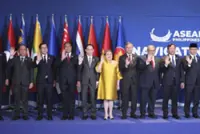RECENTLY, there was an outcry among the public when the new federal government announced that the Malaysian Islamic Development Department (Jakim) would be reviewed. Given that Jakim has been receiving a hefty share of the national budget, many have raised their concerns on its performance as well as given suggestions on its role in the new Malaysia.
In this regard, I think Jakim could play a significant role if it focuses on the prevention of wrongdoings committed in the public domain rather than private affairs of individuals.





